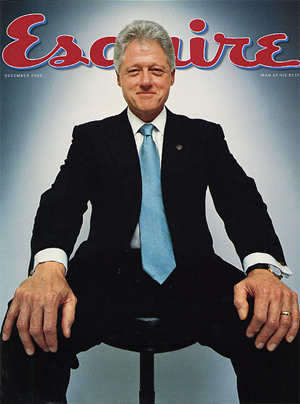I'm not sure I agree with her assessment, but I want to share it anyway.
What do you think?Kurt Cobain's Interrogation of Hegemonic Masculinity
I am taking a course about construction of celebrity in America this quarter and one of the things we were assigned to read was Kurt Cobain's Journals. I had never really thought about Kurt in an academic way but I felt as though I had an intimate relationship with his music in high school. Reading his writing and listening to his music in the context of this course really made me think about the way that he did gender or rather the way that he queered gender and pop music. It is a topic I didn't even realize I was interested in until this course. I wrote a paper about these things and my professor suggested that I think about this as a topic for my thesis especially considering there is so little work to this effect out there. It would be very cutting edge. Or something. Anyway, I thought I'd put the ideas out there and see what others think. Here is a chunk of the paper:
“Yeah, all Isms (sic) feed off one another but at the top of the food chain is still the white, corporate, macho, strong ox male. Not redeemable as far as I’m concerned. I mean, classism is determined by sexism because the male decides whether all other isms still exists (sic). Its up to men. I’m just saying that people can’t deny any ism or think that some are more or less subordinate except for sexism… I still think that in order to expand on all other isms, sexism has to be blown wide open…but there are thousands of green minds, young gullable (sic) 15 year old boys out there just starting to fall into the grain of what they’ve been told of what a man is supposed to be and there are plenty of tools to use. The most effective tool is entertainment” (Cobain, 117).
I am not sure if I started listening to Nirvana when I was a freshman or sophomore in high school but it was somewhere in there. 1999 and 2000 proved to be formative years for me as I had just entered the public school system from a very sheltered home and tiny Catholic school. My body was changing, my friends were changing, I discovered feminism and my relationship with my parents transformed. It seemed that overnight I had gone from their overachieving perfect daughter to an angsty and rebellious teenager. Kurt Cobain’s angst-filled voice, nihilistic lyrics, and grungy guitar appealed to me immediately. To make it even better his appearance and lyrics made my parents and teachers writhe. When I listened to Nirvana in high school it was a purely pleasurable experience. I would drive around my small town with my friends with Nevermind cranked all the way up on the stereo. I had posters of Cobain all over my locker and my bedroom. I thought he was so dreamy…
When I saw that we were studying Nirvana for class this week, I pulled out all of my old albums and listened to them all again. I even found my old posters! Reading Nirvana in a critical academic environment felt like a kind of violation. Listening to this music has been so intensely personal and intimately tied to my budding high school sexuality. Experiencing that music again after so long brought out many of those emotions. I feel that it is important to foreground my own personal experience with Nirvana before attempting an analysis of their work. I am a particular person with a particular experience in a particular time and space.
One thing I certainly never noticed as a teenager that I noticed immediately as a graduate student in Women’s and Gender Studies is that Kurt Cobain had a knack for challenging notions of hegemonic gender. His performance of gender is at least non-normative but I would argue that it is also queer. Cobain’s body was small and not hegemonicly masculine. His ripped up old clothes and occasional ironic cross-dressing posed a challenge to the authoritative heteropatriarchy that rules American culture.
Through his angst-filled, corporeal and occasionally disgusting lyrics and non-normative attire he queered gender and popular music. In his Journals and lyrics, Cobain seems to have an obsession with the physical body and with the disgusting, the unpleasant and the painful. Particularly he writes about gastrointestinal functions and dysfunctions. I remember being very troubled by the lyrics to “Heart Shaped Box.”“Meat-eating orchids forgive no-one just yetMeat, being a representation of a dead body is juxtaposed with the very genteel and feminine images of orchids, angel’s and babies breath (being both a flower and symbol of femininity and a representation of innocence and beginnings of life). Cobain weaves high culture, transcendental religious spirits (as opposed to bodies) traditional beauty and femininity with the so-called low brow culture, the profane, the guttural, the corporeal. In connecting these seemingly opposite things he poses a challenge to Victorian social order that values masculinity, rationality, objectivity and denial of the body over femininity and being present in one’s body with all of its grossness and potential for failure.
cut myself on angel hair and babies breath
broken hymen of your highness I’m left black
throw down your umbilical noose so I can climb right back.”

















